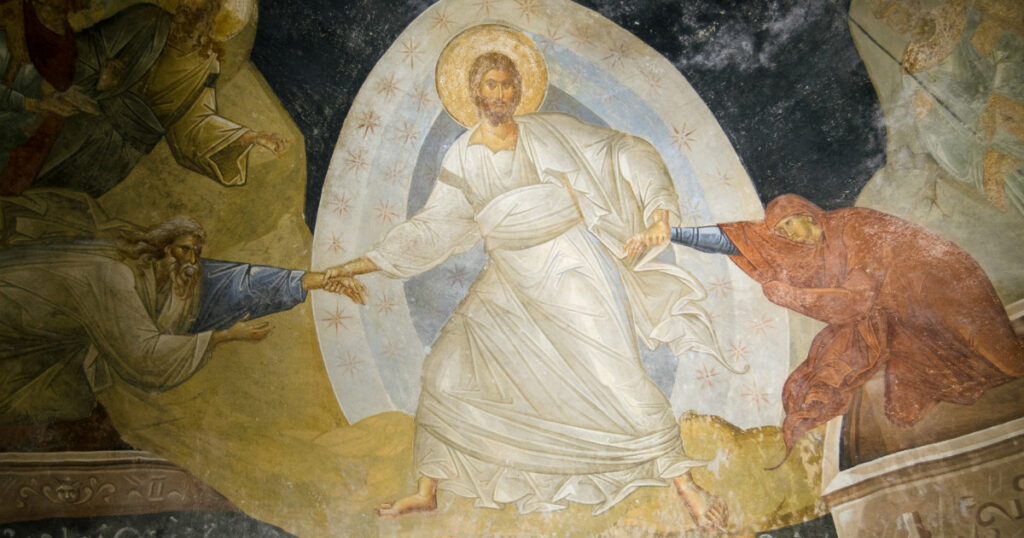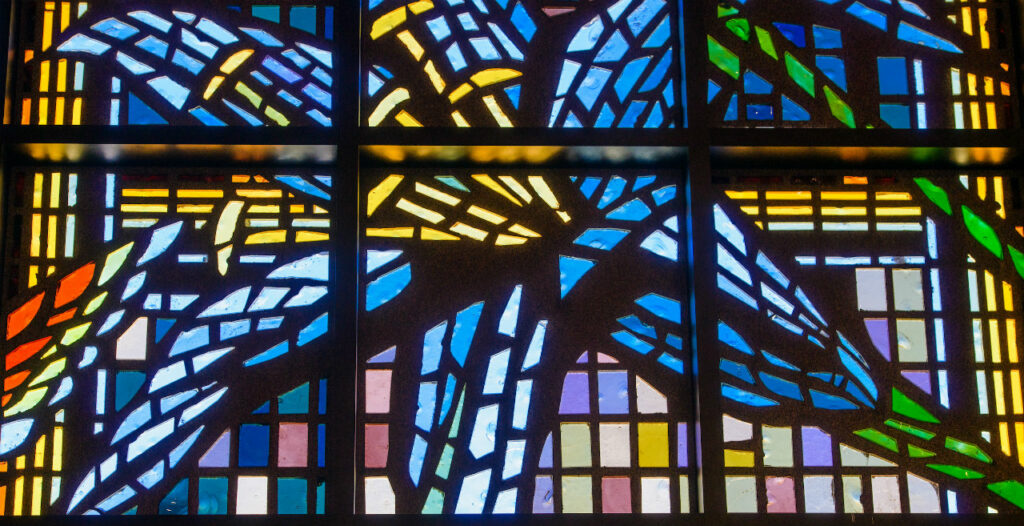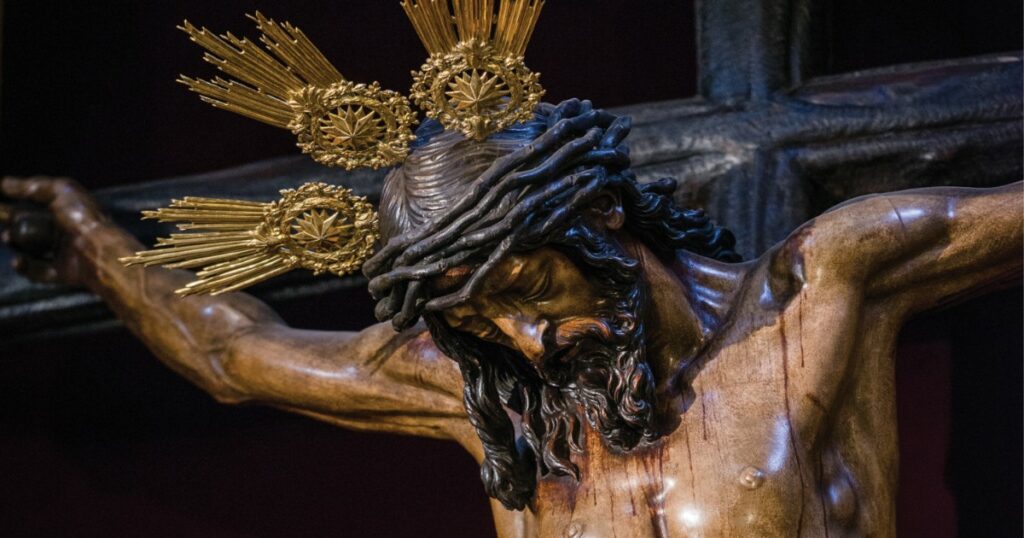by Matthew C. Harrison
Jesus repeatedly told His inner circle that He would die and rise again. “The Son of Man is about to be delivered into the hands of men, and they will kill him, and he will be raised on the third day” (Matt. 17:22). According to Jesus’ own words, He offered Himself as a substitute. “For even the Son of Man came not to be served but to serve, and to give his life as a ransom for many” (Mark 10:45). This happened in fulfillment of Old Testament prophecy. “The Lord has laid on him the iniquity of us all” (Is. 53:6). “He shall bear their iniquities” (Is. 53:11). John the Baptizer pointed to Jesus and said, “Behold, the Lamb of God, who takes away the sin of the world!” (John 1:29). In one of the most startling passages in the New Testament, St. Paul, the Lord’s own apostle, wrote, “For our sake God [the Father] made him [Christ] to be sin, who knew no sin, so that in him we might become the righteousness of God” (2 Cor. 5:19). We know when the Father turned from Jesus as the sinner, Jesus cried from the cross, “My God, my God! Why hast thou forsaken me?” (Matt. 27:46). Jesus knew exactly why. He was quoting Psalm 22, which also states, “For dogs encompass me; a company of evildoers encircles me; they have pierced my hands and feet” (Ps. 22:16). The great psalm ends, “They shall come and proclaim his righteousness to a people yet unborn that he has done it” (Ps. 22:31). Indeed, just as He put the world’s sin to death by His own death, Jesus said, “It is finished” (John 19:30).
How do we know the resurrection happened? The power of the Word of God, proclaiming forgiveness in Christ by faith, brings its own conviction. The New Testament mentions many “witnesses” to the historic fact of the resurrection of Christ (Acts 1:22). St. Paul says, “Christ died for our sins in accordance with the Scriptures [e.g., Isaiah 53], that he was buried, that he was raised on the third day in accordance with the Scriptures [cf. Matt. 12:38ff, on ‘the sign of Jonah’], and he appeared to Cephas [i.e., Peter; cf. Luke 24:34, John 21:15f.], then to the twelve. Then he appeared to more than five hundred brothers at one time, most of whom are still alive, though some have fallen asleep. The he appeared to James, then to all the apostles. Last of all, as to one untimely born, he appeared also to me” (1 Cor. 15:3ff.).
Paul prefaced this passage with, “I delivered to you as of first importance what I also received.” Paul “hands over” the “tradition” (1 Cor. 15:3). These are factual, historical markers of the resurrection. I find it unendingly significant that while opponents of Jesus contested His resurrection from the beginning (Matt. 27:62ff.), no one from within the group of Jesus’ followers, like all those Paul noted above, ever came forward with an alternative version. There is simply no record of someone present who later says, “I was actually there, and a follower of Jesus. It did not happen the way Paul and the apostles and evangelists wrote it.”
This resurrection has many ramifications for us. The sin of the world has been atoned for. Paul puts it starkly and dramatically. Jesus “was delivered up for our trespasses and raised for our justification” (Rom. 4:25). Jesus’ resurrection is the grand absolution for the sins of the world. And there are other such dramatic passages. “In Christ God was reconciling the world to himself, not counting their trespasses against them, and entrusting to us the message of reconciliation” (2 Cor. 5:19). The “big event” happened in the death and resurrection of Christ. Righteousness and salvation have been obtained, won, paid for. How is this blessing appropriated by each of us? By faith. As one Lutheran pastor put it, “Although the air surrounds you on all sides, yet it will do you no good if your lungs do not inhale it.” Faith grabs hold of the blessings of Christ — indeed, of Christ Himself. Or perhaps better to say, in faith Christ grabs hold of us.
The significance of Christ’s resurrection runs through the New Testament like a glorious golden thread. Baptism connects us to Christ’s death and resurrection! (Romans 6). Peter says, “Baptism, which corresponds to this, now saves you, not as a removal of dirt from the body but as an appeal to God for a good conscience, through the resurrection of Jesus Christ” (1 Peter 3:21). Baptism is that “appeal,” which is a result of the resurrection! The resurrected Christ delivers the keys to His disciples: “If you forgive the sins of any, they are forgiven” (John 20:23). Speak forgiveness! Speak resurrection! Jesus said over and again of those whom the Father gives Him, and who thus believe in Him, “I will raise him up on the last day!” (John 6:39, 44). And in a grand reference to the Lord’s Supper, Jesus says, “He who eats my flesh and drinks my blood has eternal life, and I will raise him up on the last day” (John 6:54).
Finally, St. Paul wrote: “But in fact Christ has been raised from the dead, the first fruits of those who have fallen asleep” (1 Cor. 15:20). It is the bedrock teaching of the New Testament that Christ is the first one raised, and we too shall be raised from the dead at the Last Day. And “sleep” is not some mere pie in the sky euphemism for the horror of death. No, death for us Christians, as Luther described it, shall be like falling asleep and then waking refreshed from a short nap. Luther, of course, in no way denies that when our spirits leave our bodies, we are with Jesus (“Today you will be with me in paradise,” Luke 23:43). “For as in Adam all die, so also in Christ shall all be made alive. But each in his own order: Christ the firstfruits, then at his coming those who belong to Christ” (1 Cor. 15:23).
What a glorious blessing is Christ’s resurrection!
— Pastor Harrison
The Rev. Dr. Matthew C. Harrison is president of The Lutheran Church—Missouri Synod.




